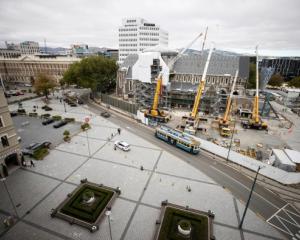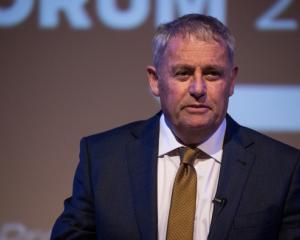
As we look ahead to the upcoming election, a major question on the mind of most voters is which government will be best able to manage New Zealand out of the current crisis – one led by Labour or one led by National.
When Covid-19 was declared a pandemic by the World Health Organisation in March, many health experts warned it would be impossible to eliminate such a highly contagious influenza virus.
The WHO now agrees, saying that Covid-19 “may never go away”. Since it cannot be permanently eradicated, it will become a long-term fact of life that will need to be appropriately managed.
They warn that while a number of vaccines are now in phase three clinical trials, “there’s no silver bullet at the moment and there might never be.”
They are also urging countries like New Zealand to re-open our borders: “Again it comes back to this idea that it is going to be almost impossible for individual countries to keep their borders shut for the foreseeable future. Economies have to open up, people have to work, trade has to resume.”
Reintegrating New Zealand back into the world is undoubtedly the major Covid-19 challenge facing the new government.
At the beginning of the outbreak it became clear, that for the vast majority of infected people, symptoms – if they had any at all – were relatively minor. For those with pre-existing health conditions and the elderly, however, the virus posed a very serious threat.
The country’s options were therefore to manage the disease and learn to live with it by protecting the vulnerable and controlling the spread through social distancing, mask-wearing, good hygiene, testing and tracing, isolation, sensible border controls, and other such measures, or closing the country down and waiting for a vaccine – even though one might never eventuate.
Jacinda Ardern and her Government decided on the second option, to eliminate the virus.
According to Radio NZ, “The government contracted 28 individuals or businesses to aid the response to the coronavirus pandemic, the bulk of which were for advertising, marketing and communications needs. As at 31 May, the government had budgeted or paid out $16,393,391 to contractors.
“The majority was to go to two firms who are listed as communications directors by the Department of the Prime Minister and Cabinet. Clemenger BBDO Limited was to be paid $3m for its role with the response, which involved the clear and concise messaging such as ‘stay home, save lives’. But the biggest earner OMD, a multinational advertising firm that works in more than 100 countries, and touts itself as the world’s biggest media network… was to be paid $12m for its role in the response.”
So it turns out that everything from “the team of 5 million” to the “be kind to each other” messaging was carefully planned, tested and executed.
Newstalk ZB’s Mike Hosking is scathing that so much money was spent on ‘spin’: “Extraordinary, isn’t it? It shows just how much we got played by a government that was as desperate to score points on this as it was to actually address a health crisis.
“Is communication important? Of course. But do you need to pay $16 million for it? No. This wasn’t simple instruction that any government or group or person can come up with, this was clearly a highly planned, seriously worked over piece of strategy designed for maximum political impact.
“And the irony is, from the advertising agencies point of view, it worked. We got sucked in, followed orders and came out hailing the Prime Minister with a 59 percent share in a poll. Value for money then? Or a master piece of fantastically expensive spin? Again, we were played like a fiddle.”
As a result of these high poll ratings, it has become increasingly clear that Labour’s re-election strategy involves riding its Covid success – and saying as little as possible about anything else.
That would certainly explain the high-profile taxpayer-funded Covid-19 advertising campaign that is currently underway. The implied messaging is: Covid-19 remains a threat, and Jacinda Ardern remains the solution.
Some commentators have now suggested that the power of those communications messages over a fearful and vulnerable population created a form of Stockholm syndrome – a psychological response that develops over the course of captivity when hostages or abuse victims bond with their captors.
As the Herald’s Head of Business Fran O’Sullivan writes, “It’s as if half the population has a giant case of Stockholm syndrome. So enamoured are they with Jacinda Ardern’s political leadership, that they are prepared to overlook the fact that New Zealand is to all intents and purposes moving into ‘a giant open air prison with a 1200-mile moat around it’… For many businesses it is starting to feel as if New Zealand is fast becoming a Kiwi-style hermit kingdom.”
To mitigate the economic damage caused by their lockdown, the Government has spent billions of dollars subsidising wages, propping up businesses, and attempting to create jobs. At its peak, the Government’s wage subsidy covered 1.7 million employees, and over 71 percent of all businesses received some form of government assistance.
In Australia, a survey run by the Bureau of Statistics revealed that one in ten companies receiving their wage subsidy, expects to close down once it runs out. It underlines fears that the subsidies are propping up hundreds of “zombie” businesses that can no longer survive in the post-Covid economy.
Whether it is the same here remains to be seen.
At present 120,000 workers are still covered by the original wage subsidy, with an additional 440,000 on the extended scheme, which runs for eight weeks for businesses with a revenue drop of 40 percent or more. Since applications for that scheme do not close until September 1, the true state of businesses will not become clear until it runs out in November – well after the election.
The big question on everyone’s mind is how will the massive debt that the Labour-led Government has run up be paid back. The numbers are eye-watering – net core crown debt which was just $58 billion barely a year ago, is expected to increase to $200 billion by 2024.
There are two schools of thought.
Socialists see the solution in raising taxes on the ‘wealthy’.
That is what the Green Party is proposing. It would not only increase the top rates of tax up to 42 percent, but it would also introduce a comprehensive wealth tax that encompasses the family home and family trusts.
Labour has so far refused to say how they plan to repay their extraordinary level of debt, but since the PM has not ruled out tax increases, they will probably be a key part of their agenda.
Parties planning tax increases should remember the advice of Winston Churchill – any nation that tries to tax itself into prosperity “is like a man standing in a bucket trying to lift himself up by the handle.”
Indeed, they should remind themselves how West Germany and Great Britain recovered from the ravages of the Second World War.
West Germany’s Economics Minister Ludwig Erhardt introduced sweeping reforms that focussed on cutting bureaucracy and taxes. As a result, innovation exploded, productivity soared, exports skyrocketed, and the country prospered.
Britain, meanwhile, had taken the path to greater state control after the war, and the country had stagnated. When Margaret Thatcher became Prime Minister she slashed bureaucracy and restored a culture of entrepreneurship. Her reforms, which embraced the virtues of freedom, lower taxes, and less regulation, transformed the economy, and the country flourished.
When National was elected to Government in 2008, New Zealand was already in the grip of the global financial crisis. Their strategy to get us onto the path to recovery consisted of growing the economy, eliminating wasteful government spending, and halting payments to the Super Fund, which is an income smoothing mechanism designed to force today’s taxpayers to subside the cost of superannuation from 2036 when the fund’s drawdown begins.
National’s strategy worked. New Zealand was one of the first countries in the OECD to recover from the GFC.
Now, faced with a new economic crisis and skyrocketing debt, National is promising a similar strategy: they would reduce debt to below 30 percent of GDP in a decade, through higher economic growth, by increasing government spending at a slightly slower rate than currently projected, and by halting contributions to the Super Fund.
What this means is that at the election, New Zealand voters will have a choice between higher taxes under a Labour-led government, or higher growth under a National-led government.
This week’s NZCPR Guest Commentator, New Zealander Dr Barend Vlaardingerbroek, a Professor at the American University of Beirut, believes that as a result of Covid-19, life is unlikely to ever be the same again:
“We have been hearing the expression ‘the new norm’ for some time but it is only starting to sink in that this ‘norm’ may be – as the term implies – long-term. People adapt to challenging situations and adopt new routines that may persist after the need for them has abated. This is all the more so when a crisis facilitates the adoption of a new way of going about things that has already been hovering in the wings but was not taken on board before because of social or institutional inertia.
“A good example of this is the shift towards so-called ‘e-learning’. The most recent email on the matter asked departments to indicate which graduate courses could not be delivered on-line. By this time next year, e-learning will have become a ‘new norm’ for many departments at my university. Even if a magic bullet against the virus is doing its stuff by then, I do not believe that we would return to conventional face-to-face classes; e-learning is, after all, more cost-effective.”
Professor Vlaardingerbroek is right – many of the old ways are likely to be gone for good. For Kiwis who have lost their jobs in industries that are no longer viable as a result of the pandemic, that means they will need to be prepared to take on work that they may not have done before. It also means that businesses that in the past were able to rely on foreign workers, will need to depend on New Zealanders instead.
The American journalist H.L. Mencken once said, “The whole aim of practical politics is to keep the populace alarmed – and hence clamorous to be led to safety – by an endless series of hobgoblins, most of them imaginary”.
He might have been talking about Labour.
The Prime Minister is working hard to keep concerns about Covid-19 in front of voters, so she can keep reminding them that if elected for another three-year term, she will keep them safe. That may explain why there is now talk about wearing facemasks and needing ‘to be prepared’.
The Director General of Health appears to be assisting the cause as well. Until now, he has opposed the wearing of facemasks by the public, but over recent days has changed his tune – even going so far as to warn the public about potential community outbreaks.
Perhaps the next step in the Covid election campaign will be to issue each member of the ‘team of five million’ a face mask and an appropriate health warning message.
When asked about the roll-out of election policy last month, the Prime Minister said, “I absolutely accept that there is an election this year, and there is no avoiding that. But at the moment, really it’s taking a bare minimum of my thinking because we are still in the middle of a global pandemic.”
I would respectfully suggest, Covid-19 is Labour’s 2020 election campaign.
With advance voting starting in four weeks’ time, surely voters have a right to know what policies Labour is planning to introduce to address the economic crisis, before they vote.













